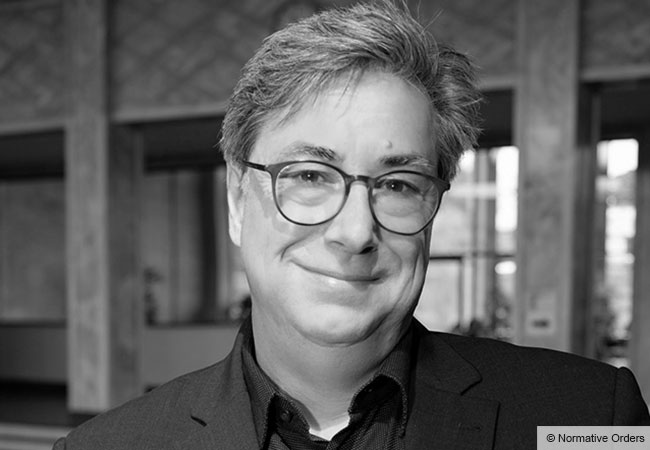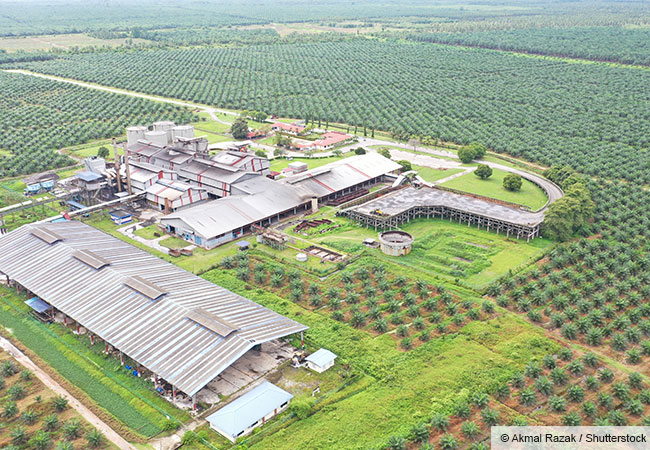Goethe University adopts paper on the tension between academic freedom, freedom of expression and social responsibility
On the occasion of its 110th anniversary, Goethe University Frankfurt released a paper outlining its positioning in the area of tension between science’s social responsibility, academic freedom and freedom of opinion. Its main message: the university offers science a space for autonomy and creativity while simultaneously defending it against non-scientific interests. However, this autonomy also has its limits and requires responsible handling, both on the part of the university as well as its members and affiliates. The paper supplements the university’s mission statement and specifies the rights and obligations both of the university and its academics, as derived from Germany’s Basic Law and other legal norms.
FRANKFURT. The paper reaffirms Goethe University’s self-image as a place where different academic views meet and struggle to make available groundbreaking knowledge. “Science thrives on dialog, discussion and discourse with stakeholders both inside and outside of academia. This is especially true for our university, which was founded by Frankfurt’s urban society for its urban society. In such a culture, academics have to withstand the possibility that others may publicly contradict them or protest against their academic events – as long as such criticism or process remains within the confines of the law. That being said, whenever academic freedom is threatened by statements or actions, it falls upon us as a university to protect it,” explains Goethe University President Prof. Enrico Schleiff. “It is important to remember that academic freedom does not apply to every statement made or event organized by scientists: There are indeed cases where they express their private opinions, for example on fields for which they are no experts, or pursue purely results-oriented ideological goals with an event. Such instances fall outside the domain of academic freedom and therefore outside the university’s sphere of influence.”
The paper was developed to provide a better basis for dealing with public criticism of and protests against public events organized by Goethe University academics. “Many debates are highly polarized. If we want to pursue science in dialog with society, we must neither shy away from nor avoid it,” explains Schleiff. “As professors, we are trained for scientific discourse. But we also have to learn how to deal with criticism and arguments that are not of a scientific nature and how to remain confident in emotionally heated situations.” That is why the university has set up new training courses, including in facilitation and communication, to strengthen scientists’ skills, also during confrontational moments.
The paper was drawn up by an expert commission headed by legal scholar Prof. Matthias Jahn. In legal terms, it has the character of an administrative regulation that specifies standards: By explaining the applicable law, it serves as a binding guideline for all university members. It cannot, however, account for every individual decision. “The university makes its infrastructure available to its researchers so they can pursue science, not to carry out on-scientific activities and formats. Determining whether or not this is the case requires a case-by-case consideration, which also accounts for the standards of the respective subject culture,” Jahn explains. “The university’s management is not permitted to control the content of science, and controversies about the way in which knowledge is gained and interpreted fall under the scientific community’s responsibility. However, the university management can decide, for example, not to make rooms available for an event that is not subject to academic freedom if this decision is organizationally safeguarded in such a manner that a structural threat to academic freedom can be excluded. If academics consider such a decision to be wrong, they have recourse to the courts.” The courts, in turn, have to consider the specifics of the university’s self-conception, explains Jahn, who has worked at various higher regional courts on a part-time basis for two decades.
The paper also clarifies that although academic freedom is guaranteed extensively in Germany’s Basic Law, this is no blank check guarantee for limitless scientific practice: It is possible to impose restrictions in individual cases in favor of goods that are considered to have greater merit, such as fundamental and human rights, freedom of education for students or the personal rights of third parties. If this is the case, the consequences can be severe: “Violations of this obligation (…) can constitute misconduct”, the paper states.
The administrative regulation specifying the standard was adopted by Goethe University’s Executive Board following earlier debates in both the Senate and the University Council. The draft was also discussed with representatives of Frankfurt municipality.
The administrative regulation’s official wording:
Science at Goethe University Frankfurt: Between individual freedom and social responsibility. Norm-concretizing directive, adopted by the Executive Board on October 1, 2024, following consultations with the Senate and the University Council. PDF | Q&A







